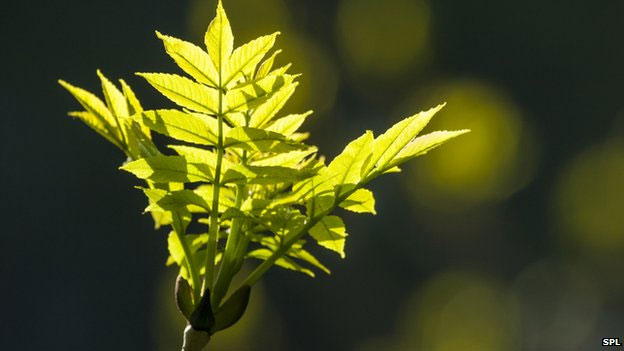Plants consume more CO2 than we think
(Global research) - Global climate models have underestimated the amount of carbon dioxide absorbed by plants.
>>>Tracking climate change with new methods
Scientists say that from 1901 to 2010, plants absorbed 16% more CO2 than previously thought by scientists.
This helps explain why models always overestimate the growth of carbon in the atmosphere.
However, experts believe that these new calculations are difficult to make a difference with the predictions of global warming.
This research was presented in the journal Proceedings of the National Academy of Sciences.
The study considers how much of the carbon dioxide in the air plays an important role in assessing the future impacts of global warming on temperature.
About half of the CO2 produced will end the cycle in oceans or be absorbed by living organisms.
However modeling accurate impacts on a global scale is a complex and very difficult job.
In the new study, a group of scientists reviewed how plants and other plants absorb carbon.

By analyzing how carbon dioxide spreads slowly in leaves, a process known as diffusion in the mesophyll diffusion , the authors concluded that many COs 2 has been absorbed more than previously thought.
They concluded that between 1901 and 2010 the total amount of carbon increased from 915 billion tons to 1.057 billion tons, an increase of 16%.
"There is a time gap between the basic process research scientist and the modeler, who models the process in a large-scale model , " one of the authors of the study, advanced explains Lianhong Gu at Oak Ridge National Laboratory at the US National Laboratory.
"It takes time for the two groups to understand each other."
Researchers believe that models of the earth system have estimated to exceed 17% of total atmospheric carbon, and their new calculations help explain the distance.
"The concentration of CO 2 in the atmosphere only begins to accelerate quickly after 1950," said Dr. Gu. "So a 17% increase in deviation will occur while the period lasts 50 years. If we predict how much CO2 concentration will increase after hundreds of years, these deviations will grow. to what extent? ".
Other researchers believe that the new study will help clarify global climate models, but this does not mean that delays occurring during global warming are a consequence of increased CO2 concentration.
Dr. Pep Candell from the Global Carbon Project in CRISO, Autralia said: "This study provides new knowledge about the function and complex structure of leaves that can cause an impact on a full scale. how is it ".

This helps give a potential explanation for why the global earth system models cannot completely replicate the rise of CO 2 in the gas observed for 100 years. and show that plants can absorb more carbon dioxide in the future than be modeled as they are today.
"There is more carbon absorbed by plants that will slow climate change but there are many other processes between this activity and the ultimate ability of terrestrial ecosystems to eliminate carbon dioxide and Carbonic storage is long enough to make a difference in atmospheric CO 2 trends. "
Many experts agree that this effect is very interesting and may need to revise the calculation models to predict climate change, but it does not change the need to cut emissions in the long term. manipulating the effects of carbon dioxide.
This study implies, it will be a little easier to implement the goals of limiting global warming to below two degrees - but with a focus on the word "slightly vapor" . Dr. Chris Huntingford, a climate modeler at the UK's Center for Ecology and Hydrology (UK's Center for Ecology) said.
"In general, the amount of carbon dioxide emissions that need to be cut in the next few decades to achieve the goal of keeping the earth just below two degrees will still be very large."
- Chimp is an energy-saving mammal
- 'No place where wild animals fall as fast as in Vietnam'
- The project turns trees into multi-purpose biological sensors
- Trees also behave like people
- 80,000 species of plants on Earth are about to become extinct
- There is no brain but plants are smarter than we think
- How is 'that' in plants?
- Extremely hidden carnivorous plants
- 'Discover healthy indoor plants
- These are plants that NASA recommends growing indoors
- 1/5 species of plants in the world are about to become extinct
- At what time during the day does the body consume the most calories?
 Is the magnetic North Pole shift dangerous to humanity?
Is the magnetic North Pole shift dangerous to humanity? Washington legalizes the recycling of human bodies into fertilizer
Washington legalizes the recycling of human bodies into fertilizer Lightning stone - the mysterious guest
Lightning stone - the mysterious guest Stunned by the mysterious sunset, strange appearance
Stunned by the mysterious sunset, strange appearance